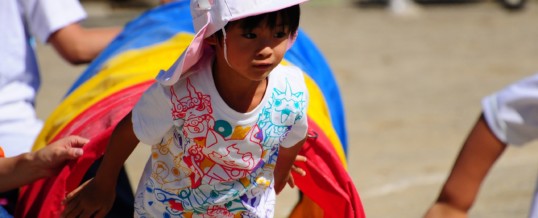
At one time, being ready for kindergarten meant knowing your name, address and phone number, being able to print your name, counting up to a certain number, reciting the alphabet in order and even tying your shoes.
These are helpful accomplishments, but in reality they have little to do with “readiness” for learning in a school setting.
Parents are a child’s first teachers, and they have all the tools needed to have him ready and eager to learn in an environment away from home, and from a teacher who isn’t also a caregiver. No special kits, flashcards or materials as-seen-on-TV are necessary.
In the everyday life of a family, parents guide children through many milestones that are part of being school-ready. These include:
Self-care
You won’t be with him, so his bodily needs (eating, using the toilet, dressing, wanting to be clean) will be up to him. So take advantage as he shows signs of wanting to “do it myself.” As he tries to be more independent, you can encourage each small step and admire his efforts. A child who can do for himself in a new environment can be less dependent on others – and is freer to focus on taking in and using new concepts.
Communication
Your child will be ready for school when he can tell others what he needs, when he needs help and what he doesn’t understand. Encourage him to use words at home to let you know what he wants and how he feels. Help him put into words how he feels when he looks sad or acts angry.
When he is curious about his world and asks questions, try to take the time to answer him simply. His “Why?” and “What’s a …?” curiosity will make him an eager learner at school. The ability to communicate at school will keep the learning tasks focused. It will help him avoid getting sidetracked with interfering behaviors of acting out or shutting down from the frustration of not understanding or not being understood.
Being part of a group
Being able to play comfortably with others his age will help greatly when he is at school. As you observe your child playing with others, watch for his ability to wait for a turn and share materials. If he has difficulty with this, help him see how the fun he’d been having was spoiled because he made his playmate feel bad by grabbing, pushing in front or not sharing.
Help him want to be liked and to see his role in whether things go well and if he and his friends are having fun. When he can use more inner controls to behave in a friendly way – rather than always needing outer discipline – he will feel good about himself and have more positive energy for learning and making good relationships.
“Missing” feelings
It’s normal to miss Dad, Mom and home, but these feelings do not need to overwhelm your child. Point out to him all of the things he can do already because he worked hard and practiced. Tell him how proud you are of all the ways he shows you that he is growing up. Let him know that you will be missing him, too; that his school is a place you know about and like. Hopefully, you and he will be able to visit the school, his room and teacher before the first day. If he has seen his room and met his teacher with you, it serves to put your “stamp of approval” on it and he can feel that he is “safe.”
If you do visit his room, you can point out some of the activities he is already familiar with, such as the blocks, puzzles and some of the art materials. Remembering doing some of them at home with you will help him be able to do things at school when you’re not with him.
There may be set-backs. He may have been in other programs where there were extended separations, but this is different and it may bring up those “missing” feelings again. At home, be prepared to listen and give your child the opportunity to express the worries and frustrations he may have.
Admire the way he could tell you and let you help with his feelings. Let him know you have missed him, too, but feel so proud of all the good growing up he’s shown he can do. The more confidence you have in him, the more confident he can be.
Explore our kindergarten and preschool programs. For younger children, our parent/toddler program provides developmentally minded fun.
JUN
2024


About the Author: